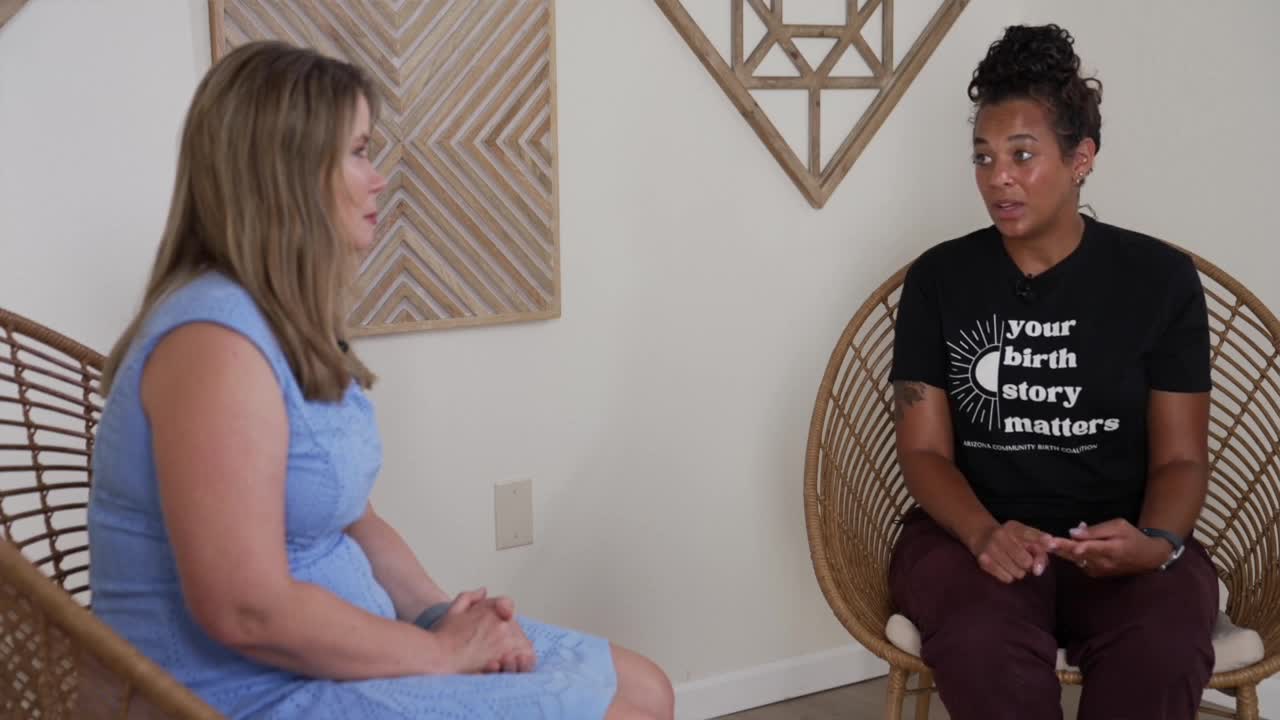PHOENIX — As the number of mothers choosing to give birth outside of a hospital quickly grows in Arizona, some maternity and public health experts are calling to update rules for non-nurse midwives.
Over four years, the number of births planned at home or at freestanding birth centers in Arizona rose nearly 40 percent, according to CDC data. The number grew from 1,275 births in 2019 to 1,750 births in 2023. At the same time, the total number of births in Arizona dipped by 1.6%.
The out-of-hospital birth trend also has increased concerns about the quality and reliability of midwife care. Midwives are often the providers for home births and birth center deliveries.
There are two kinds of midwives in Arizona, those who have advanced nursing degrees and those who don’t.
The Arizona Department of Health Services licenses the non-nurse midwives, also known as certified professional midwives. There are approximately 100 ADHS-licensed midwives. These midwives are sometimes called direct-entry midwives. To obtain a state license, they usually train through apprentice programs and are certified by the North American Registry of Midwives (NARM).
RELATED: Search ABC15’s midwife database
"My priorities as a midwife are a safe birth, a vaginal birth, and then a home birth in that order, and when they get out of order, we get into trouble," said Morgann Burres, a licensed midwife and vice president of the Arizona Community Birth Coalition.
Burres is an ADHS-licensed midwife who says the health department is too focused on regulating paperwork.
"We often will get fined for really silly things based on the midwife reports that we submit," Burres said.
ABC15 found that one-third of all ADHS-licensed midwives have been fined for late patient care reports in the last four years. A handful of other midwives were disciplined for state health rule violations.
"They're administrators who are looking over our shoulder to make sure that our rules are followed, but they do not have the qualifications to determine if our rules are adequate, or if our rules are evidence based, or if our rules make any sort of sense," Burres said. She said none of the ADHS regulators have experience as midwives.
Burres suggests updates to the state health rules, like allowing midwives to ride in the ambulance with mom or baby if they need to transfer to the hospital for emergency care. She also wants more medication options, especially for treating uterine hemorrhaging after birth.
"It's not enough to just issue enforcement actions against individual licensees," said Will Humble, executive director of the nonprofit Arizona Public Health Association.

ABC15 is committed to finding the answers you need and holding those accountable.
Submit your news tip to Investigators@abc15.com
Humble was ADHS director in 2013, the last time the state overhauled midwife rules. Changes then included allowing midwives at home births to deliver breech babies and vaginal births after cesarean (VBACs).
Complications during a VBAC at home resulted in the death of Jordan Terry and her baby Mack in 2023. The midwife, Sarah Kankiewicz, ended up surrendering her license. The tragedy raised new questions about safety and accountability for ADHS-licensed midwives.
Humble would like to see additional research using ADHS midwife reports, especially outcomes after birth complications.
"To me, the biggest problem is that [ADHS] has not developed a report that uses that data to make it actionable and so that they can use it for decision making purposes, whether that's individual regulations with midwives or looking at their own performance as a regulatory body," Humble said.
Both Humble and Burres agree ADHS should also reestablish an advisory board of practicing midwives.
"I became a midwife because I want better outcomes for moms and babies,” Burres said. “I want patient choice and informed consent, not because I want to follow rules that don't honor either of those."
ABC15 reached out to representatives from the Arizona Department of Health Services several times for comment on these community recommendations, but we received no response.
You can reach Melissa by email at melissa.blasius@abc15.com or call 602-803-2506. Follow her on X @MelissaBlasius or Facebook.





